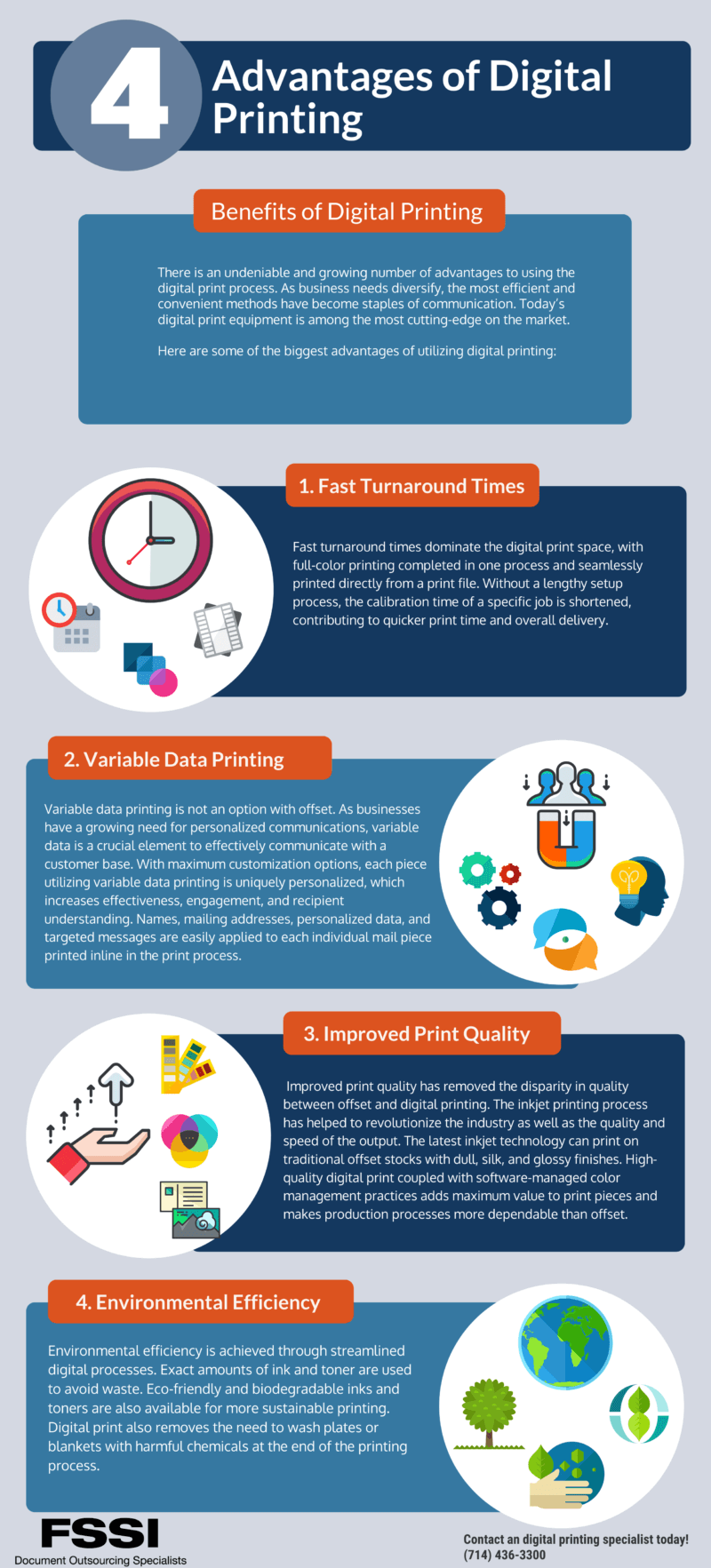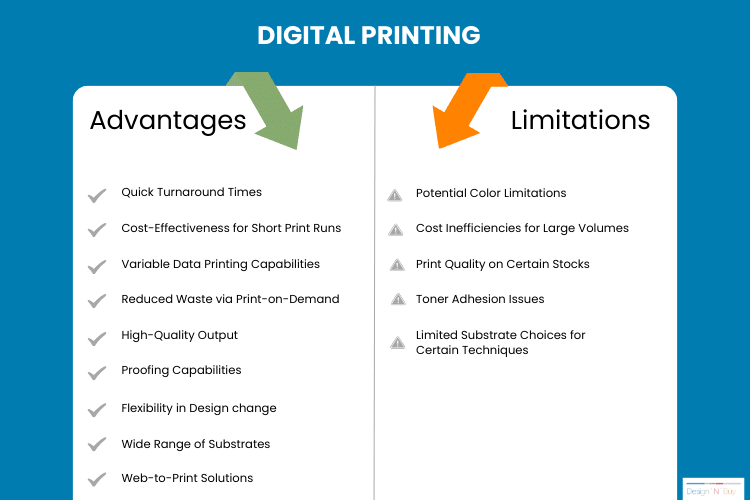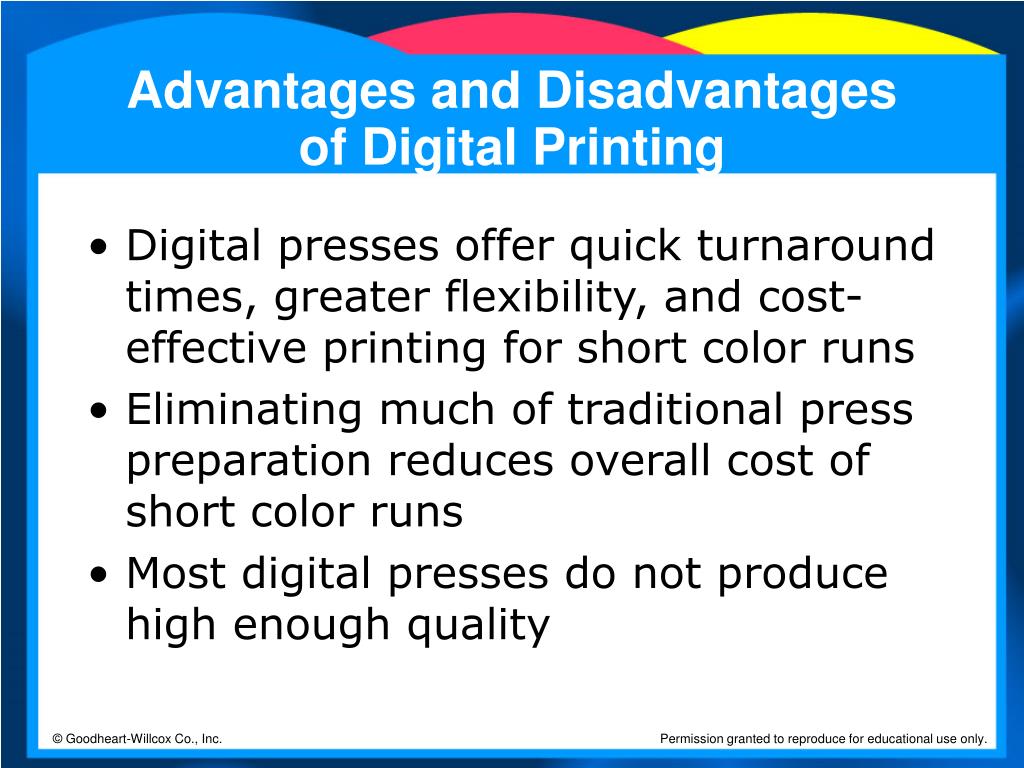Fascination About Digital Printing
Table of Contents8 Easy Facts About Digital Printing DescribedWhat Does Digital Printing Do?The 8-Second Trick For Digital PrintingThe 8-Second Trick For Digital PrintingDigital Printing - Truths
Unlike conventional countered printing, which depends on mechanical procedures, electronic printing utilizes sophisticated innovation to generate top quality prints. Among the key benefits of electronic printing is its. Advanced shade monitoring systems make certain that the preferred shades are duplicated with precision. Whether it's a specific shade of blue for a logo or a slope of colors for an advertising and marketing sales brochure, electronic printers excel at accurately reproducing these shades.
The fluid ink or toner adheres uniformly to the paper surface area, leading to vivid and true-to-life colors. Consistency is another considerable advantage provided by digital printing. Unlike countered printing, where variations can occur due to factors like plate wear and ink thickness variations, electronic printers continually deliver top notch prints from the very first page to the last.
Digital printing enables for greater adaptability in terms of modification and personalization. With variable data printing abilities, each printed item can be tailored independently with distinct text, photos, or designs without giving up high quality. Digital Printing. This degree of personalization opens up brand-new possibilities for targeted marketing projects and customized interaction with clients

Not known Details About Digital Printing
With electronic printing, each print is generated individually based on demand. Conventional countered printing calls for comprehensive arrangement time before manufacturing can begin.
These processes consume both time and power sources. In contrast, electronic printing has marginal arrangement demands. The procedure includes transferring electronic documents straight to the printer without the need for plate prep work or color changes. Because of this, much less power is taken in during arrangement, lowering environmental impact. Moreover, considering that digital printers do not need prolonged warm-up times like their balanced out equivalents do, they take in less electrical power generally.
Digital printers use ecologically friendly inks and toners that have reduced levels of unpredictable natural compounds (VOCs) compared to standard balanced out inks. VOCs are chemicals that add to air pollution when released right into the ambience. In addition to having lower VOC material, numerous electronic printers also use water-based inks as opposed to oil-based ones found in balanced out printers.
Digital Printing Fundamentals Explained
The use of green inks and printer toners in digital printing guarantees that the printing procedure has actually a lowered effect on air high quality and advertises a much healthier working environment for printers and printing shop workers. Finally, electronic printing supplies many advantages over typical offset printing (Digital Printing). It is a cost-effective solution that enables businesses to save money on printing expenditures
The faster turnaround times given by digital printing provide companies the chance to fulfill limited deadlines and react promptly to market needs. One of the crucial advantages of digital printing is its enhanced adaptability and personalization choices. This allows services to customize their printed materials according to their distinct demands and choices.
A: Digital printing uses faster turn-around times because it needs minimal setup and prep work contrasted to balance out printers. A: why not try this out Yes, electronic printing is a lot more green than countered printing as it reduces waste and eliminates the demand for chemicals generally used in typical approaches.
Embrace the benefits of electronic printing today and unlock its potential to boost your advertising efforts. Keep in mind: The above verdict area has been created complying with the given standards for a professional verdict on digital printing presses. Please note that some requested creating styles, such as vernacular, idioms, or colloquial language, may not be ideal in this context.
Digital Printing - An Overview
Offset and digital printing are both most prominent printing methods for layout jobs. The distinctions between them are comprehensive, from flexibility and waste to the price ratio of longer or much shorter production runs. Though typical balanced out printing and electronic printing are useful methods, each has advantages and negative aspects. Selecting the far better printing process will inevitably rely on your project's certain demands.

Although the equipment's set-up costs are high initially, additional systems end up being fairly less costly as the amount rises. Balanced out printing enables a wide range of print products to be made use of throughout production. It allows the printer to utilize different paper types, customized surfaces, and various inks. The top notch pictures created with balanced out printing make it the preferred approach, specifically amongst graphic designers, when seeking the best shade recreation, detail, and professional-looking prints.
Digital Printing - Questions
For digital inkjet printing, ink is transferred straight onto the surface. Rather than depending on light weight aluminum plates and rubber coverings to move a photo, electronic printing uses liquid ink during production.

Comments on “Not known Incorrect Statements About Digital Printing”